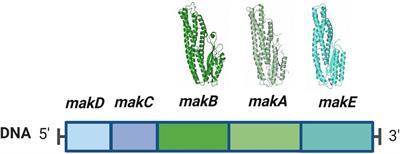ORIGINAL RESEARCH
Published on 03 Oct 2024
MakC and MakD are two proteins associated with a tripartite toxin of Vibrio cholerae

doi 10.3389/fmicb.2024.1457850
- 688 views
280
Total downloads
4,784
Total views and downloads
Submit your idea
You will be redirected to our submission process.
Manuscripts can be submitted to this Research Topic via the main journal or any other participating journal.
Submit your idea
You will be redirected to our submission process.